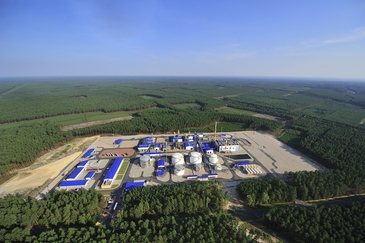November and with it the heating season has begun, and the countries of the European Union are still pumping gas into storage facilities. These are almost 100% full, which ensures the security of supply in spite of the actions of Russias’n Gazprom.
The energy crisis began in the summer of 2021, when Gazprom limited gas supply in Europe even more, which led to record prices in 2022 and concerns about security of supply. These prompted the European Union to implement two mechanisms that Poland had been advocating for for years: joint purchases of gas and the obligation to accumulate reserves of this fuel in case of a threat to supply.
The EU rules that entered into force in 2022 introduced the possibility of joint purchases of gas, thanks to which the Europeans secured an additional 27 billion cubic meters, despite the fact the European Commission had expected that it would be a maximum of 13.5 bcms. Meanwhile, the obligation to fill up to 80 percent of the storage capacity by the end of September each year was met already in August. These actions also have an Eastern policy dimension. The Ukrainian energy ministry said that the European Union has pumped in its storage facilities 4 bcm, taking advantage of preferential tariffs and security provided despite the Russian invasion.
The latest data from the gas market show the triumph of these Polish ideas at the European level. Gas storage facilities are 99.49 percent full as of November 4th and the pumping continues, despite the start of the heating season at the beginning of the month. Poland is above the EU average with stocks reaching 99.51 percent of capacity. This may be one of the reasons for the new decline in prices on the TTF Stock Exchange, which recorded increases after the mysterious incident and the leak from the Balticconnector gas pipeline. Presently natural gas on the TTF costs 47 euros per megawatt hour in December contracts, down from nearly 60 euros recorded after the Balticconnector leak. The accumulated stocks increase investor confidence in the security of supply during the heating season.
Wojciech Jakóbik









